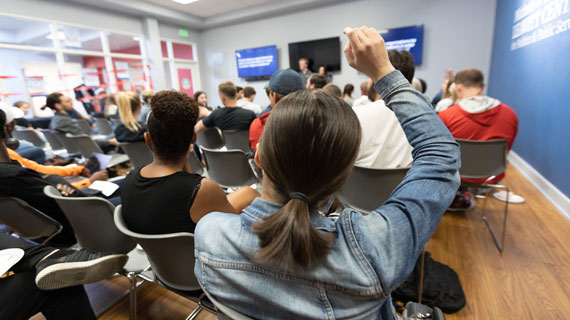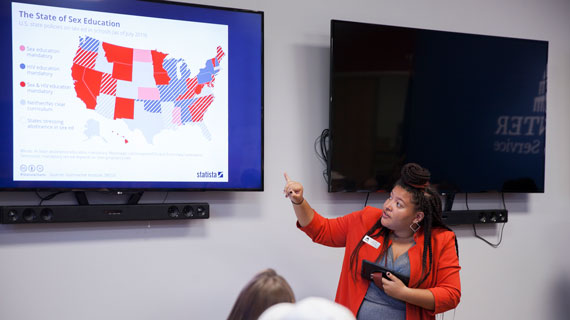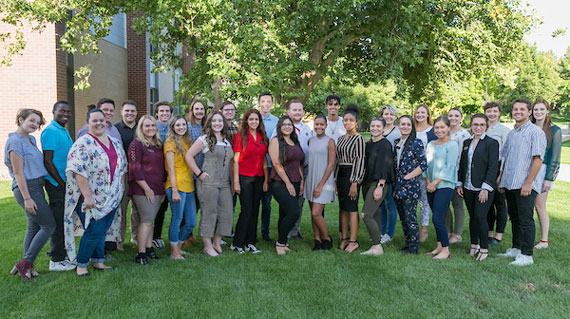Pizza and Politics Discusses Religious Freedom
Posted: September 27, 2019 | Author: Tiago Rodrigues da Costa | Read Time: 2 minutes
 Is it religious freedom important? At the end of this week’s Pizza and Politics hosted by the Michael O. Leavitt Center for Politics and Public, the answer from students was clear: It is essential.
Is it religious freedom important? At the end of this week’s Pizza and Politics hosted by the Michael O. Leavitt Center for Politics and Public, the answer from students was clear: It is essential.
Religious freedom is a constitutional right for all Americans, but here in Utah, the topic of religion may be taken more emotionally than in other states. Policy considering faith is highly debated as seen in this week’s Pizza and Politics presentation, moderated by students and members of the Leavitt Center’s Executive Council Tom Cloward and Kiely Penman.
“Religious freedom means that anyone can have their beliefs, without those beliefs being attacked,” Cloward said. “Whether those beliefs are nothing or something. It’s the ability to be yourself and to believe in the way that you want to without having problems.”
Students agreed that the freedom to believe without limitations is fundamental, but other topics divide more than unite. Students disagreed about the freedom for the government to tax churches, for churches to lobby in Congress, and for medical professionals to deny services based on faith. Some in the room stated the power to tax is the power to destroy, others said lobbying helps to make good policy, and others said churches should not intervene in the government.
“I was really interested to see how people felt about healthcare,” Penman said. “That policy was just passed and that’s a very personal thing that can be taken on both sides.”
The sub-topic of healthcare was probably one of the most debated in this session. The question was clear: “Should medical professionals have the right to deny services based on religious objections?” The room divided into both ends of the spectrum. While some people said doctors have to be able to separate their job from their faith, other people stated there are enough medical professionals in our society to cover everyone’s beliefs, and doctors should be free to deny services based on faith.
“I had heard something about conscience objections,” said senior Kaya Housekeeper, a social science major. “But, I think it’s just too loose to talk about how we think that some conscientious objections are worthier than others. If somebody says they are from a certain religion, that’s a conscience right. But if they are not religious and they have a conscience, so they don’t have the same rights to concisely object to something?”
“I think that a lot of religions have been oppressed over time,” Housekeeper said. “Also, the lack of religion is oppressed. Somebody said, ‘religious freedom, but also freedom from religion.’ That’s why I think this topic is important.”
The Michael O. Leavitt Center for Politics and Public Service hosts Pizza & Politics every Wednesday at noon to discuss a current political topic. Leavitt Center student employees research the topic and moderate the conversation. These discussions expose students to a variety of important issues and encourage them to share their own perspectives while learning all sides of an issue. Free pizza is provided for all who attend.
This article was published more than 3 years ago and might contain outdated information or broken links. As a result, its accuracy cannot be guaranteed.
Tags: Leavitt Center


